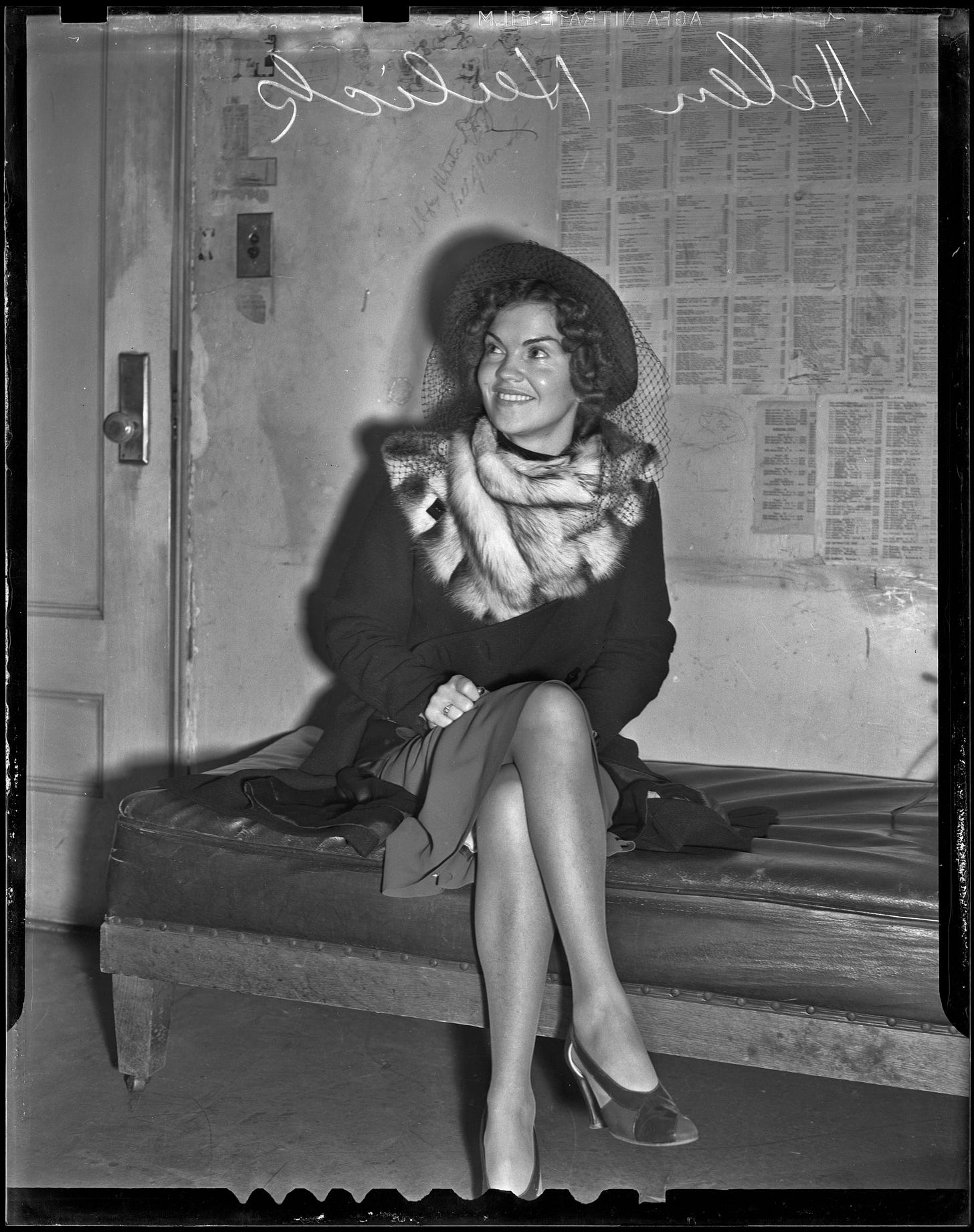Helen Hulick Beebe walked into the courtroom wearing slacks. She wasn't doing so to make any kind of statement. Rather, the comfortable pants were simply part of her daily work attire as a kindergarten teacher in Los Angeles, CA.
But this was 1938. And when Helen took the witness stand to testify in a burglary case against two men who had broken into her home, the judge commented on her slacks. He told her to come back the following court day wearing a dress.
As she told reporters at the time, “Listen, I’ve worn slacks since I was 15. I don’t own a dress except a formal. If he wants me to appear in a formal gown that’s okay with me. I’ll come back in slacks and if he puts me in jail I hope it will help to free women forever of anti-slackism.”
She arrived the next day wearing her pants again. To which the judge said,
“The last time you were in this court dressed as you are now and reclining on your neck on the back of your chair, you drew more attention from spectators, prisoners and court attaches than the legal business at hand. You were requested to return in garb acceptable to courtroom procedure.
Today you come back dressed in pants and openly defying the court and its duties to conduct judicial proceedings in an orderly manner. It’s time a decision was reached on this matter and on the power the court has to maintain what it considers orderly conduct.
The court hereby orders and directs you to return tomorrow in accepted dress. If you insist on wearing slacks again you will be prevented from testifying because that would hinder the administration of justice. But be prepared to be punished according to law for contempt of court.”
She returned in her slacks again. And the judge ordered her to be jailed for five days for contempt of court.
The 19th Amendment had secured women the right to vote nearly two decades earlier, but the momentum for broader women’s rights reforms had slowed. The country was still grappling with the devastation of the Great Depression, and many social and political movements took a backseat to economic survival. Feminism lost some visibility as a result. But in everyday life, women were still testing and pushing the limits. Small decisions carried social weight.
Helen's decision did just that. Newspapers ran her picture—standing proud, smiling, wearing the pants. The story traveled far, not only for the oddity of the charge but for what it revealed: the audacity of a woman who wouldn't apologize for being herself.
Though the judge had mandated five days, Helen would spend a few hours in jail after the Appellate Division overturned his decision. When she returned to court, she did so in a dress. But made a point of going extra fancy for the occasion.
Helen's story, though, has more to it. And in many ways, this is the part that should be memorable. Along with teaching, Helen was a scholar - she had earned a Ph.D. and conduct research on developing a better approach to education for the deaf than commonly done.
Keep reading with a 7-day free trial
Subscribe to Historical Snapshots to keep reading this post and get 7 days of free access to the full post archives.





